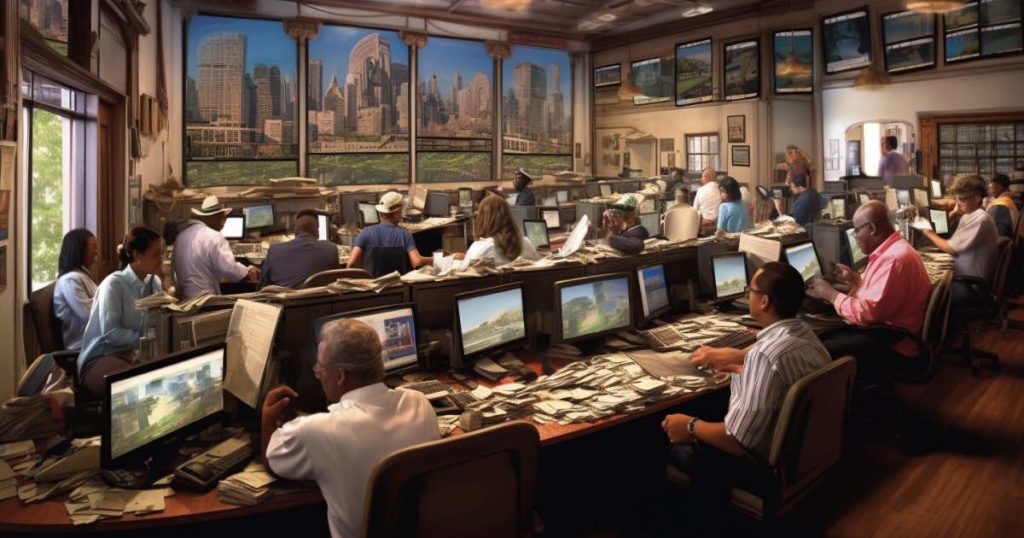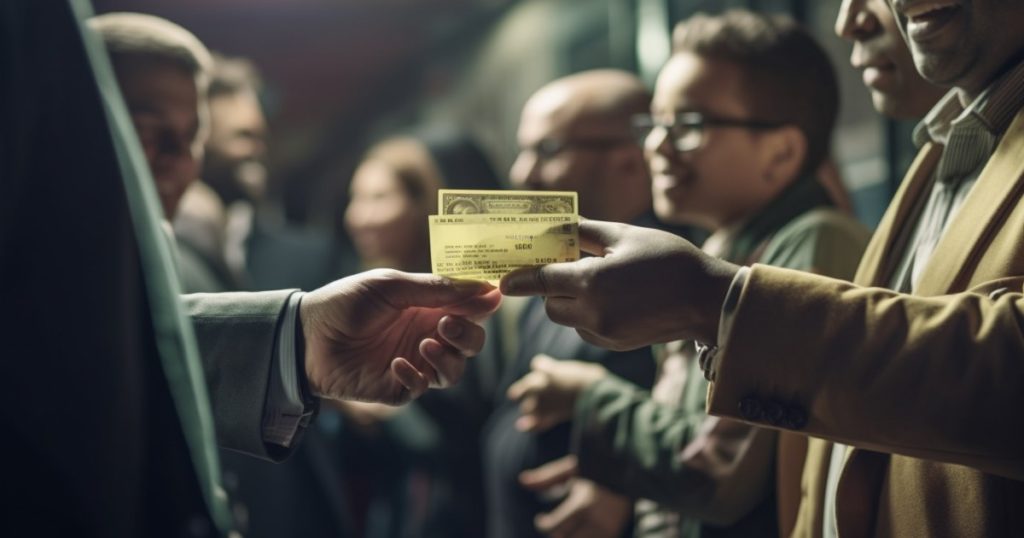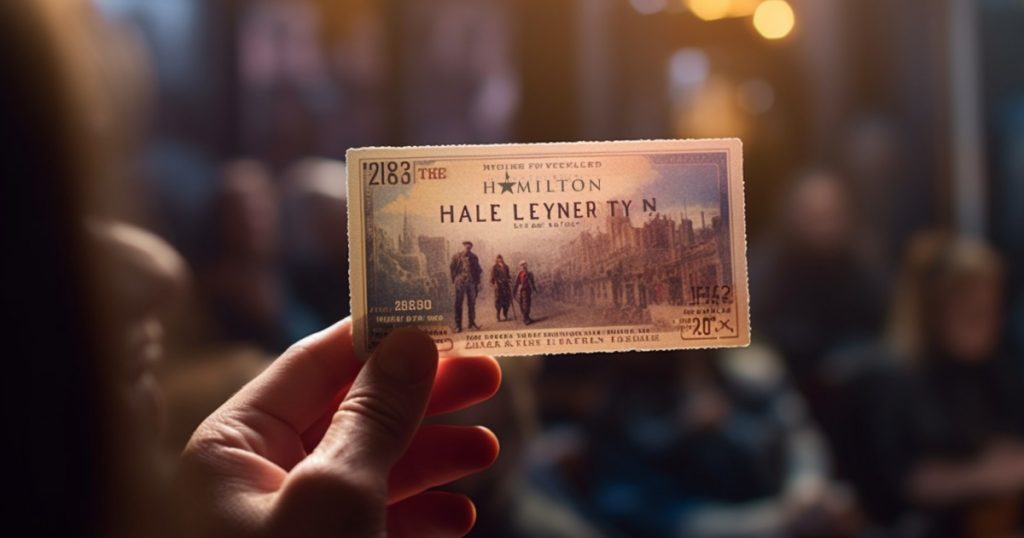Hamilton, the Broadway sensation that has taken the world by storm, is a hot ticket item. With its blend of hip-hop, R&B, pop, and traditional show tunes, it’s no surprise that securing a seat in this revolutionary musical can feel like winning the lottery. But where do ticket brokers fit into this picture? Let’s dive in and find out.
Understanding Ticket Brokers
Ticket brokers, often dubbed as the ‘middlemen’ of the event ticket world, are individuals or companies that buy tickets with the sole intention of reselling them at a profit. They’re savvy, quick, and have a knack for nabbing tickets to high-demand events like Hamilton. But it’s not all smooth sailing. The ticket brokering business is fraught with controversy, with critics arguing it drives up prices and prevents true fans from getting seats.
The Role of Ticket Brokers in Hamilton Ticket Sales
So, how do ticket brokers impact Hamilton ticket sales? The answer is multifaceted. On one hand, brokers can inflate prices, making it harder for average fans to afford tickets. On the other hand, they provide a secondary market for those who missed out on the initial sale or can’t make a scheduled performance. It’s a double-edged sword, a dance of supply and demand that can either help or hinder depending on the situation.
Tips for Buying from Ticket Brokers
If you’re considering buying Hamilton tickets from a broker, tread carefully. Not all brokers are created equal, and it’s crucial to do your homework. Look for brokers who are members of the National Association of Ticket Brokers, as they’re required to adhere to a code of ethics. Be wary of deals that seem too good to be true, and always check the broker’s refund policy. Remember, knowledge is power when it comes to navigating the secondary ticket market.
The Economics of Ticket Brokering
Understanding the economics of ticket brokering can help shed light on why Hamilton tickets can be so pricey on the secondary market. Ticket brokers operate on the principles of supply and demand. When a show like Hamilton is in high demand, and the supply of tickets is limited, prices naturally rise. Brokers, with their ability to buy large quantities of tickets quickly, can control a significant portion of the market, further driving up prices.
However, it’s not all about making a quick buck. Ticket brokers also take on a considerable amount of risk. If a show doesn’t sell as well as expected, or if they overestimate the market value of the tickets, they can end up losing money. It’s a high-stakes game, and the world of Hamilton ticket sales is one of the most competitive arenas.
The Impact on Fans
So, what does this mean for Hamilton fans? On the downside, the involvement of ticket brokers can make getting tickets more expensive and challenging. Fans often have to compete with brokers who use sophisticated software to buy tickets the moment they go on sale. And if you’re buying on the secondary market, you can expect to pay a premium.
On the upside, ticket brokers can provide access to tickets long after they’ve sold out elsewhere. If you’re desperate to see Hamilton and don’t mind paying extra, brokers can be your ticket to the show. Plus, brokers often offer a wider range of seating options, from the front row to the balcony, giving you more choices.
The Future of Ticket Brokering
As the controversy around ticket brokering continues, changes are on the horizon. Many are calling for stricter regulations on ticket brokering, and some artists are taking matters into their own hands by implementing ticketing systems that aim to thwart brokers.
For example, some shows use a ‘paperless’ ticketing system, where the purchasing credit card is required for entry. This makes it harder for brokers to resell tickets. Others use a lottery system for high-demand shows, giving all fans an equal chance of getting tickets.
While it’s unclear what the future holds for ticket brokering, one thing is certain: the love for Hamilton isn’t going anywhere. As long as fans are eager to be in the room where it happens, there will be a market for Hamilton tickets, whether through brokers or other channels.
The Role of Technology in Ticket Brokering
Technology plays a significant role in the world of ticket brokering. Sophisticated software, often referred to as bots, can purchase large quantities of tickets within seconds of them going on sale, much faster than any human could. This gives brokers a distinct advantage and is one of the reasons why hot tickets like Hamilton can sell out so quickly.
However, the use of bots in ticket sales is highly controversial and is even illegal in some places. Critics argue that it gives brokers an unfair advantage and drives up prices for fans. On the other hand, brokers argue that they provide a valuable service by making tickets available to those who are unable to purchase them when they first go on sale.
The Ethics of Ticket Brokering
The ethics of ticket brokering is a hotly debated topic. Critics argue that brokers take advantage of fans by buying up tickets and selling them at inflated prices. They believe that tickets should be sold on a first-come, first-served basis and that everyone should have an equal chance of getting tickets at face value.
On the other hand, supporters of ticket brokering argue that it’s a legitimate business practice. They point out that brokers take on a significant amount of risk and that they provide a service by making tickets available on the secondary market. They also argue that brokers can help to drive down prices by creating competition on the secondary market.
How to Beat the Brokers
If you’re a fan looking to score Hamilton tickets without paying broker prices, there are a few strategies you can try. First, try to buy tickets the moment they go on sale. This may require some planning and quick clicking, but it’s your best chance of getting tickets at face value.
Another option is to enter the Hamilton lottery, which offers a limited number of tickets for each performance at a significantly reduced price. While your chances of winning are slim, it’s worth a shot. After all, you’ve got to be in it to win it!
Finally, consider looking for tickets closer to the performance date. While this can be risky, brokers often lower their prices as the event date approaches to avoid making a loss.
Frequently Asked Questions
What is a ticket broker?
A ticket broker is an individual or company that purchases tickets for events with the intention of reselling them at a profit. They operate in the secondary ticket market and often use sophisticated software to buy large quantities of tickets quickly.
How do ticket brokers impact the price of Hamilton tickets?
Ticket brokers can significantly impact the price of Hamilton tickets. Because they often buy large quantities of tickets quickly, they can control a significant portion of the market. This can drive up prices, especially for high-demand events like Hamilton.
Is it safe to buy Hamilton tickets from a broker?
While it can be safe to buy Hamilton tickets from a broker, it’s important to do your homework. Look for brokers who are members of the National Association of Ticket Brokers, as they’re required to adhere to a code of ethics. Be wary of deals that seem too good to be true, and always check the broker’s refund policy.
What can I do to get Hamilton tickets without paying broker prices?
There are a few strategies you can try to get Hamilton tickets without paying broker prices. Try to buy tickets the moment they go on sale, enter the Hamilton lottery for a chance to win discounted tickets, or look for tickets closer to the performance date when brokers may lower their prices.
Conclusion
While ticket brokers play a significant role in Hamilton ticket sales, they’re not the only way to get tickets. With a bit of planning, a dash of luck, and a whole lot of patience, you can secure your seat to one of the hottest shows on Broadway. And remember, no matter where you end up sitting, the magic of Hamilton is sure to leave you spellbound.



